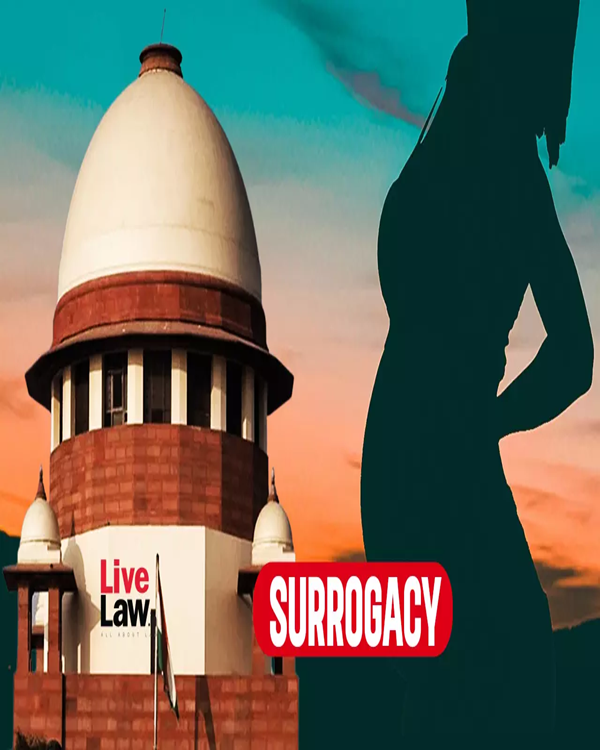SURROGACY AND THE RIGHTS OF A SINGLE, UNMARRIED WOMAN
Opting for surrogacy is often a choice made when a woman is unable to bear children of their own. Babylonian law and custom allowed this practice of surrogacy to avoid divorce. Developments in medical science, change in social customs and legal proceedings together paved the way for surrogacy – a term what we understand in today’s world. A large number of ethical questions have been raised over a period of time in the matters concerning social justice, women’s right, child welfare etc. Many argue that it leads to the exploitation of women in developing countries whose wombs are commodified to meet the reproductive needs of the more affluent. while others argue that it provides much needed resources to women facing poverty. WHAT IS SURROGACY
It is a process in which a woman carries and delivers a child for a couple/individual. Surrogate mothers are impregnated through the use of invitro fertilization. A legal contract is required for intended parents and their carrier before the whole process begins. So surrogacy is an arrangement in which a woman (the surrogate) agrees to carry and give birth to a child on behalf of other person or a couple ( the intended parent/s). SURROGACY LAW IN INDIA

The Surrogacy ( Regulation) Act 2021 permits only married couples or only a women who is a widow or a divorcee between the age of 35 to 45 years to have children through surrogacy. It does not allow a single woman or a never married woman to use surrogacy for having children.
Limiting the right to become a mother and discriminating against a woman on the basis of her status of marriage infringes her right to equality Article 14, Right against any discrimination Article 15 and her right to life under Article 21 of the Indian Constitution . Law has made marriage a basis of classification and not discrimination was held by the Supreme court. NOTED EXAMPLES
Film Producer Ekta Kapoor had a child through surrogacy in 2019 at the age of 43 before the act in question was passed. Karan Johar had twins at the age of 44 and Tushar Kapoor had a son at the age of 39 years.
WAY FORWARD The provision of the Act infringes with the Fundamental Rights of an individual and also the basic Human Rights of an individual to built a family recognized by the United Nations. Simultaneously, it also violates the reproductive rights of the a woman. Marital status requirement under the provision of the Act is mandatory for a woman to be eligible for this act. Presuming that later she gets divorced she still be eligible under this Act to surrogate. Divorce does not ceases her right though she becomes a single individual and later would be single parent and the marriage per-se does not exists
The Supreme Court has advised ways to get off the present problem by suggesting adoption instead of surrogacy. How an adopted child would be different from surrogate child, it poses a larger question for introspection. Child would remain a child whether adopted or surrogate. When the court suggests adoption as an alternative to make a family then the drawbacks associated with single parenting will come into operation. Actress Sushmita Sen has adopted two daughters and she is looking after the children well even though been a single parents.

